The Premier League is having an identity crisis – but one thing can save it
Season 2023-24 preview: Miguel Delaney highlights the uncertain future of what has been branded ‘the greatest show on earth’, plus the storylines capable of retaining that global fascination with the competition

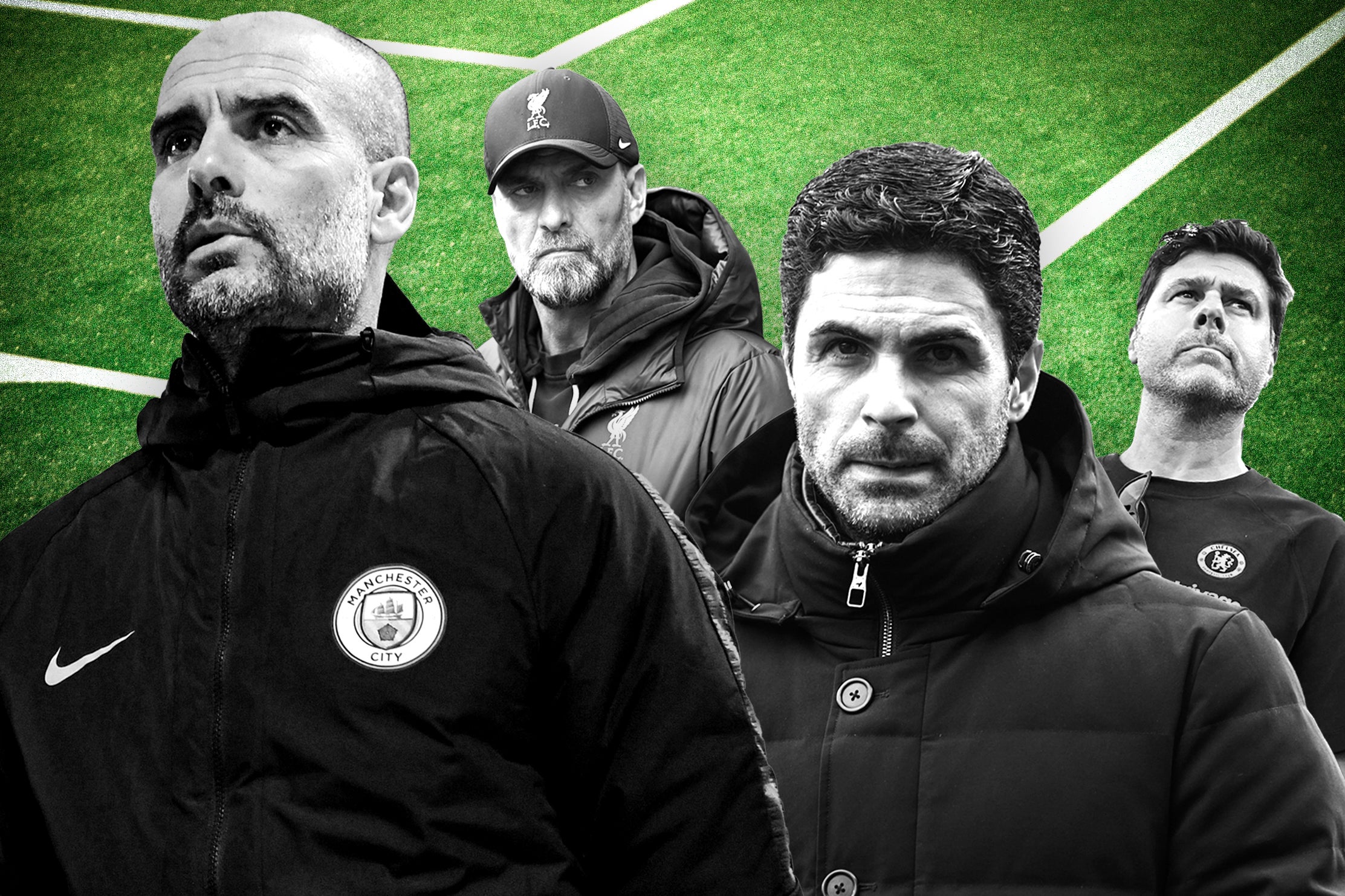
Your support helps us to tell the story
From reproductive rights to climate change to Big Tech, The Independent is on the ground when the story is developing. Whether it's investigating the financials of Elon Musk's pro-Trump PAC or producing our latest documentary, 'The A Word', which shines a light on the American women fighting for reproductive rights, we know how important it is to parse out the facts from the messaging.
At such a critical moment in US history, we need reporters on the ground. Your donation allows us to keep sending journalists to speak to both sides of the story.
The Independent is trusted by Americans across the entire political spectrum. And unlike many other quality news outlets, we choose not to lock Americans out of our reporting and analysis with paywalls. We believe quality journalism should be available to everyone, paid for by those who can afford it.
Your support makes all the difference.If the Premier League is to become a title race between Pep Guardiola and Mikel Arteta once again, it will not be the only way they stand apart. They are two of the only people in the competition who seem to think anyone other than Manchester City can win the title. Even Guardiola’s opinions on that have to be viewed with some caution, however, given the performative humility he occasionally displays.
A tight title race certainly isn’t what the Catalan expects from his City players on the eve of the season. Guardiola is demanding more perfection.
Some of the other public comments on the issue from Jurgen Klopp and Erik ten Hag are similarly for the benefit of their own squad, but it should still be notable for the Premier League that the managers of its two biggest clubs are now so open about how closed off the title is.
“Nobody besides City can have the real target to become champions again this year,” the Liverpool manager said. Ten Hag totally echoed that, saying that only City have the right to talk about the title.
This may not exactly be the most thrilling preface for a season currently selling itself as the “greatest show on earth”, but that’s sort of the point. The issue poses an identity question for the Premier League, especially given how it has surged clear as the planet’s most popular sporting competition. The extravagant expenditure in this window is further testament to that – but does all this show it is no longer living up to this “unique selling point”?
Is it still the most competitive when considering the destination of that lion-adorned trophy? This is something an increasing number of executives are raising, especially amid the uncertainty of the Financial Fair Play charges, to go with new reports about Chelsea’s issues under Roman Abramovich.
It’s also a question that goes beyond whether it is the new Bundesliga or the new Ligue 1 since the factors that have led to this are definitely unique to the Premier League. It remains the one domestic competition almost totally open to any ownership model, and the possibility of Manchester United being taken over by Qatar has carried over into the new season. Some officials are even concerned about how there could soon be a 14-6 majority of American-influenced ownership, which could feasibly bring tangible changes to the competition through the voting procedures. In all this, the Premier League is just a fitting reflection of what this Britain has become.
The Abu Dhabi purchase of City was a landmark moment in all of this, especially in how it created a precedent for such takeovers, but the project now stands on the brink of doing something unprecedented.
City could become the first-ever English club to win four titles in a row, and the first to claim six in seven. Such a feat would of course only follow a treble that capped a record-equalling three in a row.
This would mark what is obviously a clear change, even as many still profess it is no different to previous dynasties. The problem is that the context is completely different.
It means the question now is really whether City must be seen as the obvious winners in every competition they play, at least while Guardiola is there.
This isn’t so easy to sell as the greatest show on earth, even if it isn’t yet a problem for broadcasting contracts. That doesn’t mean it isn’t a problem for the very meaning of the league.
Amid such numbers, another counterargument is that the champions don’t actually spend that much any more. That’s the extra value of being able to afford the best executives, as well as a historically great manager like Guardiola. He has the team so finely tuned that he now only really needs one or two major signings a season to keep them cruising. Sir Alex Ferguson and the great Liverpool used to be like this, too.
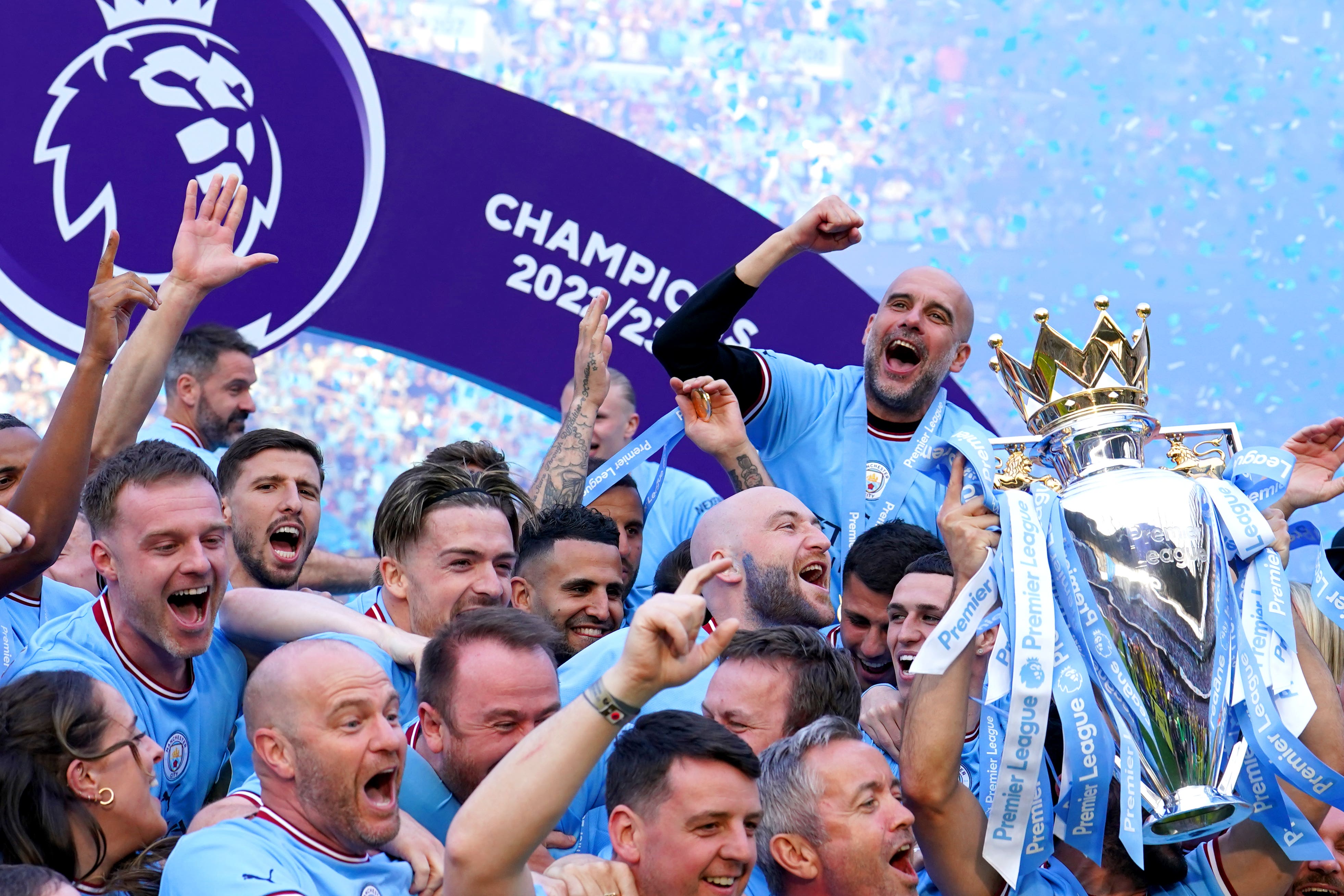
The shift now is that one of those signings tends to be at least £90m all in, although that says as much about the state of the market.
The Premier League is facing its first major challenge from the Saudi Pro League and its exorbitant wealth, but it has so far only served to aid clubs’ transfer plans. No prime players have really gone. Clubs like Chelsea, Liverpool and even City have instead been aided by receiving bigger fees for players they wouldn’t have otherwise used.
European football figures would meanwhile point to how the Premier League’s resources have been far more ruinous for football, something that is a direct product of its ownership model. It was an earlier stage of this same problem.
Complacency about all of this would be a mistake, though, which makes the comment by chief executive Richard Masters that he “wouldn’t be too concerned” about the Saudi influence on football all the more surprising. You only have to look at the ongoing story about Newcastle United’s ownership, especially amid the LIV Golf case.
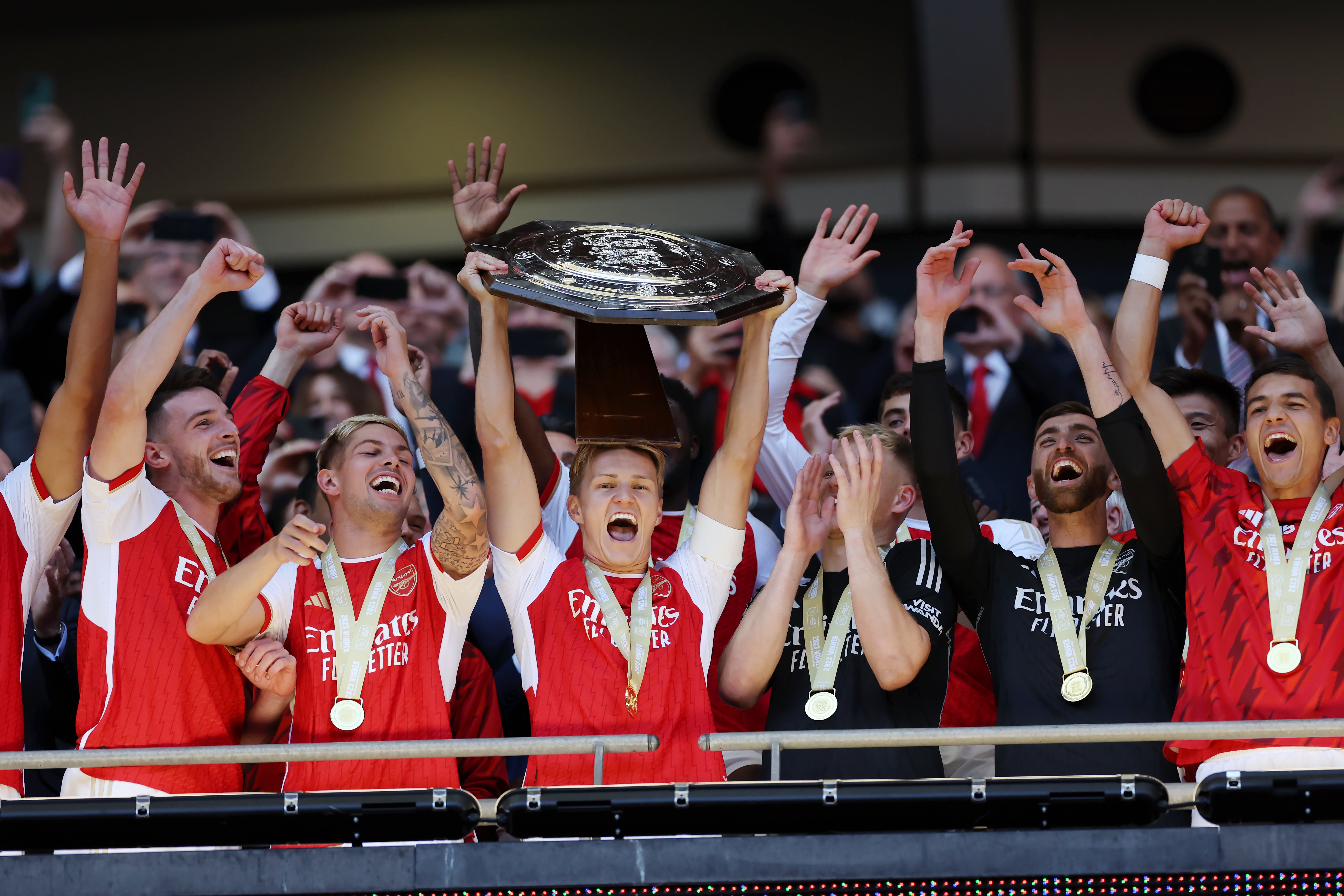
The biggest surprise on the pitch is no longer the overperformance of Eddie Howe’s side, or even Brighton, both of which offer greater intrigue for the new campaign.
The most common type of player Guardiola now employs is a centre-half. Josko Gvardiol only adds to them. This is something that would have been completely unimaginable even a decade ago. That was when Guardiola made his name by seeking to use a sub-six-foot centre-midfielder in the same position, as well as almost every other position. A team full of ball-playing schemers was supposed to be his ideal. This has been quite the inversion, even as it has led to the Catalan equalling his trophy haul at Barcelona.
It is primarily the influence of Erling Haaland, though, as the Norwegian’s own inevitable evolution raises the frightening prospect that he could be even better this season. He is clearly the Premier League’s marquee player, in a way City haven’t really had before. He also conditions the entire City team in a way not seen under Guardiola since Lionel Messi, even if the Argentine was obviously much more versatile and tactically fluid.
By contrast, Guardiola knows he absolutely has to play Haaland in a specific forward role. Everything else has been retrofitted to that. The Catalan created a box in defence to balance his side last season. And that has been the platform to elevate Haaland.
Anticipating potential new problems in Guardiola’s visionary way, the arrival of Gvardiol increases the number of different options at centre-half, meaning the platform is always shifting. It makes City more difficult to read. The effect is likely to ensure the champions are unmovable at the top.
It could be dispiriting, but that isn’t how football tends to work. The game’s great beauty, as everyone from Borussia Dortmund to Lille and of course Leicester City might attest, is that everyone is always willing to have another go; to keep dreaming.
It is an attitude that has fed into a Premier League that is increasingly frenetic the further you go down the table. The race for the Champions League place could be intense as United improve, while both Liverpool and Chelsea look resurgent. That may be diminished, however, by the likelihood that England ends up with five spots through the new coefficient rules to expand the Champions League.
That could mean Brighton or Aston Villa force their way in, as both offer the greatest hope for something different this season.
Whether they can break such ceilings without state takeovers is another huge question for the Premier League’s evolving identity, not to mention the identities of the clubs. What can the best success for either possibly be? Can they really become Champions League clubs? Would that pose other challenges, as regards resources and recruitment?
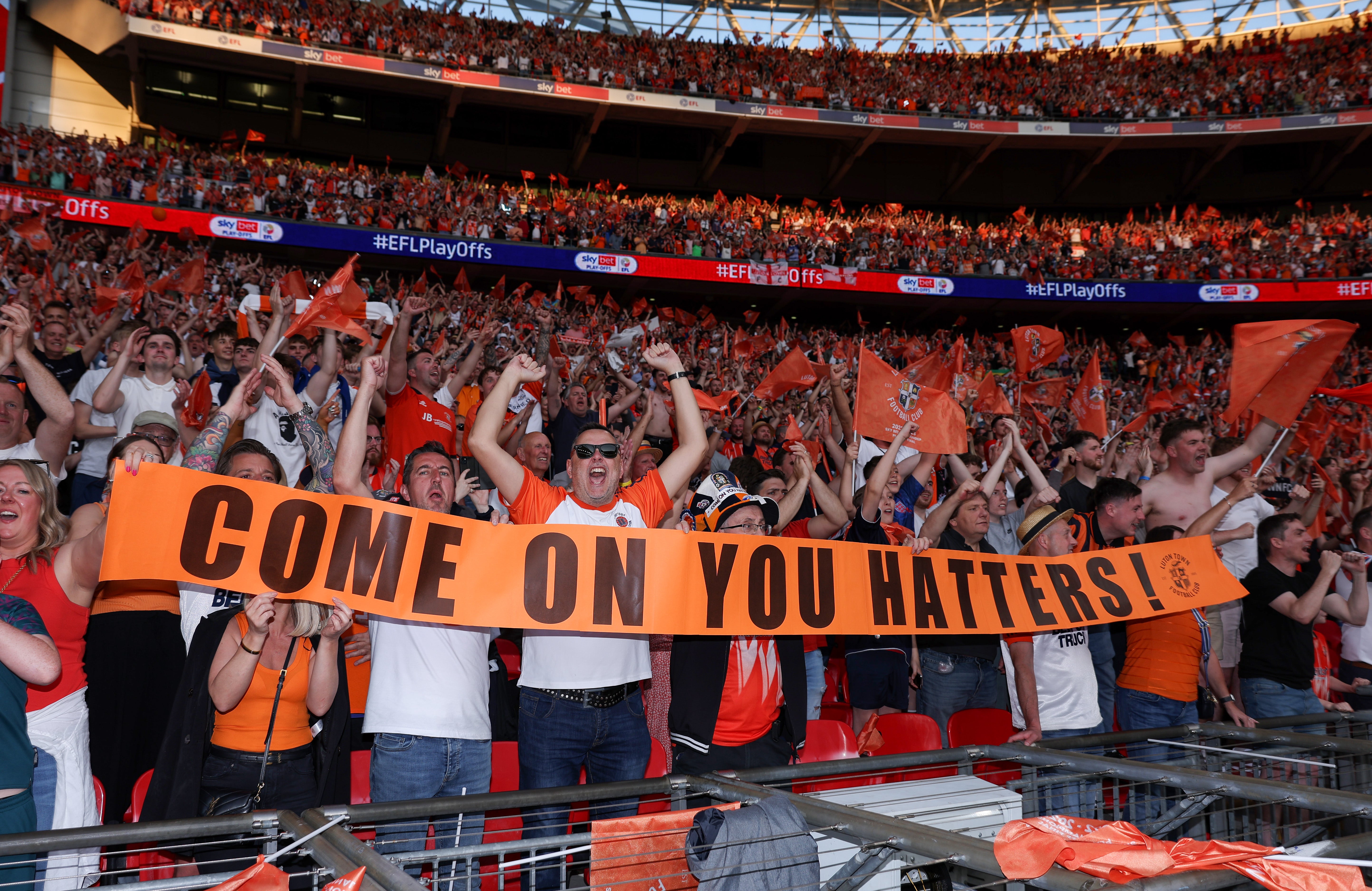
One recent Premier League official lamented that getting into the elite competition actually created more problems as it disrupted their model.
Newcastle are meanwhile going to face the challenge of adapting to midweek Champions League football again. Their raucous supporters will of course relish it, but it can have an offset.
Arsenal might face something similar as they go all out to win that title they feel should have been theirs last season. Arteta is bringing the team closer and closer to something special. Whether that leads to a special achievement remains to be seen. Arsenal could find themselves in a similar situation to Klopp’s Liverpool in building a truly great side but not having the success to show for it because City are so dominant.
This is why one moment of the summer might be so important. Arsenal have already subjected City to a rare defeat and that wasn’t the Community Shield: they also beat them to Declan Rice, in the hope he can be one of those truly transformative players who completes an evolving side.
This is where most of the excitement lies. The dynamic has admittedly given the Premier League something genuinely new, even in European football; something that it surprisingly hasn’t had before in all its rich history of drama and storylines.
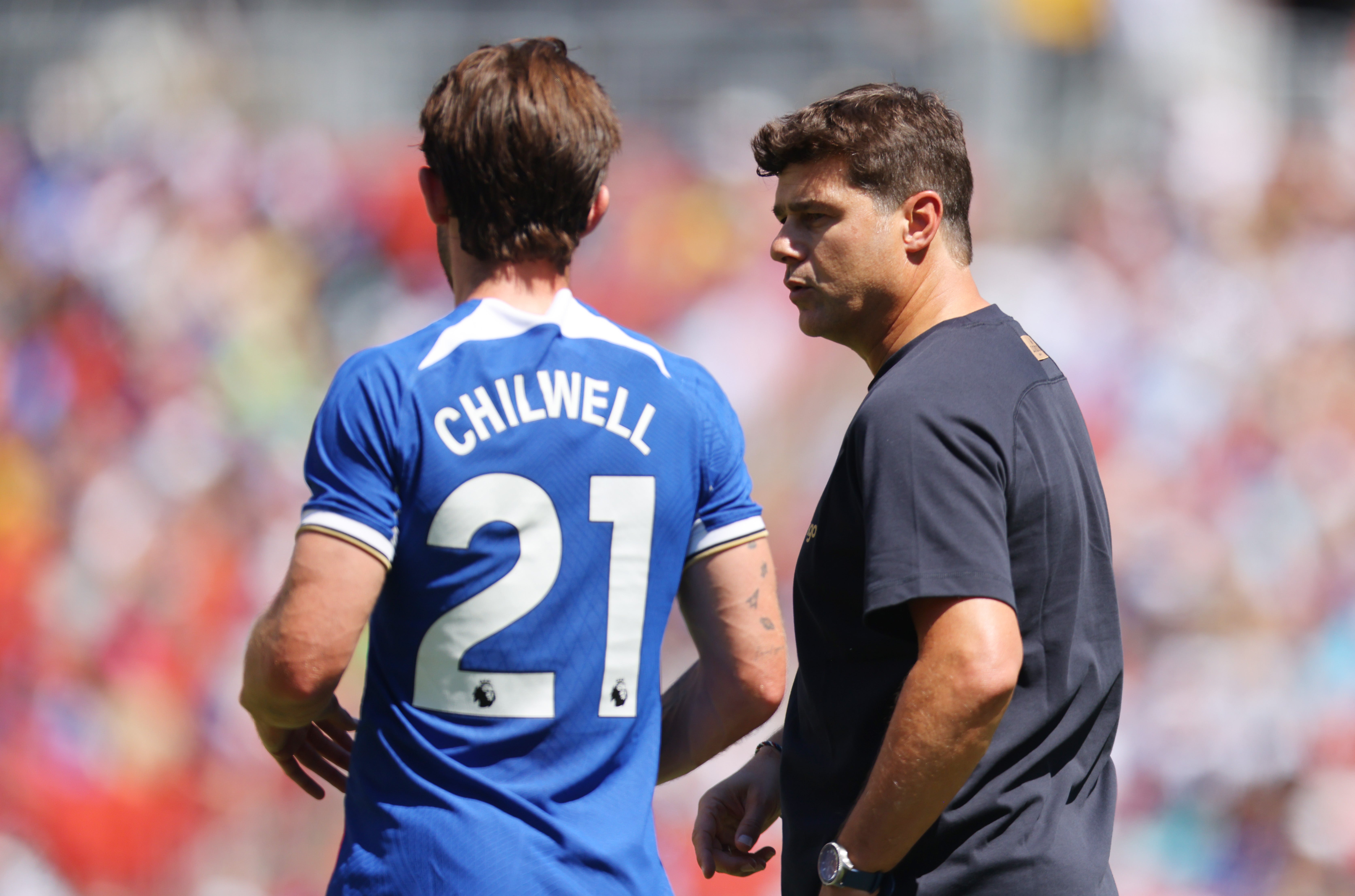
Arteta going up against Guardiola, but in a way where it might almost be on equal footing, is the first true master-apprentice rivalry at the very top of the table. Not even Ferguson had that. You actually have to go back to 2010 and Jose Mourinho’s Champions League final against Louis van Gaal for a comparable example in the modern game. It adds a very human narrative, one that hopefully enriches the football.
A proper Guardiola-Arteta sporting rivalry would be very welcome. Many are watching to see whether their relationship remains as cordial. There is already talk that Guardiola and Arteta don’t message as much, although that is natural.
Some of Arsenal’s own improvement will be natural, as stars like Bukayo Saka and Martin Odegaard get that bit closer to their prime. Rice will add physical and tactical variety. But will it be enough to actually push City all the way, let alone overtake them?
Can Klopp raise Liverpool back to that level? Can a returning Mauricio Pochettino get Chelsea immediately winning in the way he surprisingly demanded, or even cut it in the same way himself?
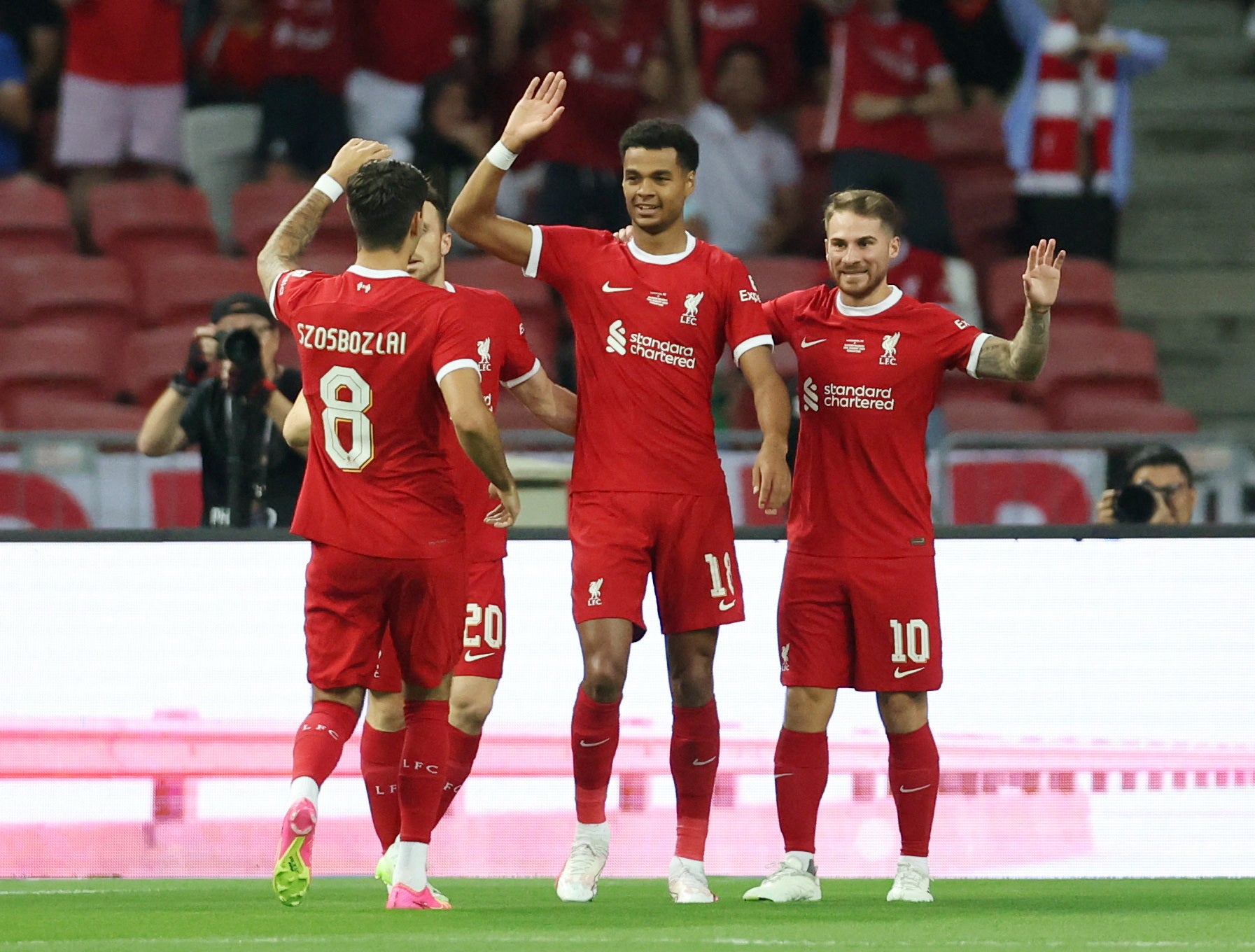
Such uncertainties feed into this burgeoning identity issue for the Premier League. There is a similarly unpredictable feel to the bottom half, where any three of 10 sides could go down. The bottom half actually tells less than half the story. Luton Town at least offer something new, but the great wonder is whether they can withstand the economic gravity of the Premier League.
It all makes this an oddly important season for the competition as a whole. The title may tell a lot about whether the Premier League is still the Premier League we’ve known.






Join our commenting forum
Join thought-provoking conversations, follow other Independent readers and see their replies
Comments